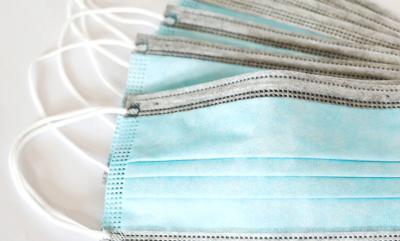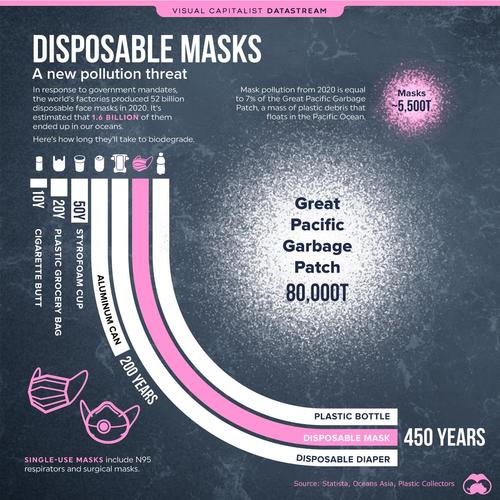1.6 Billion Disposable Masks Entered Our Oceans in 2020

All Global Research articles can be read in 51 languages by activating the “Translate Website” drop down menu on the top banner of our home page (Desktop version).
Visit and follow us on Instagram at @crg_globalresearch.
***
Following the World Health Organization’s formal declaration of the COVID-19 pandemic, governments around the world quickly mandated the use of face masks in public spaces.
This led to a massive demand shock, prompting factories to begin producing disposable masks at full capacity. The majority of these masks were produced in China, and in April 2020, the country reported a staggering daily production figure of 450 million masks.
Plastic Pollution: A Lesser Known Side Effect
In Ocean Asia’s 2020 report, Masks on the Beach, researchers developed a formula to provide reasonable estimates for the number of disposable masks entering the environment.
Given an annual production figure of 52 billion disposable masks and a loss rate of 3% (the percentage of masks that escape water management systems), Visual Capitalist’s Marcus Lu notes that the team concluded that nearly 1.6 billion face masks wound up in our oceans in 2020. This amounts to approximately 5,500 tons of plastic pollution.

These masks are commonly made of polypropylene, which easily breaks up into microplastics. While the effects of microplastics on human health are not yet determined, these fragments are incredibly common in our water supply – for example, 94% of U.S. tap water is deemed to be contaminated.
Disposable Doesn’t Mean They’re Gone
Despite their single-use nature, disposable masks are expected to take more than four centuries to decompose while in the ocean. Here’s how this compares to other items we use on a day-to-day basis.

The pandemic has extended well into 2021, and the number of disposable masks polluting our oceans is likely to continue growing.
With this in mind, various companies and organizations are beginning to search for a solution. One noteworthy example is Plaxtil, which is developing a method for recycling surgical masks so that the raw materials can be used for other products.
*
Note to readers: Please click the share buttons above or below. Follow us on Instagram, @crg_globalresearch. Forward this article to your email lists. Crosspost on your blog site, internet forums. etc.

